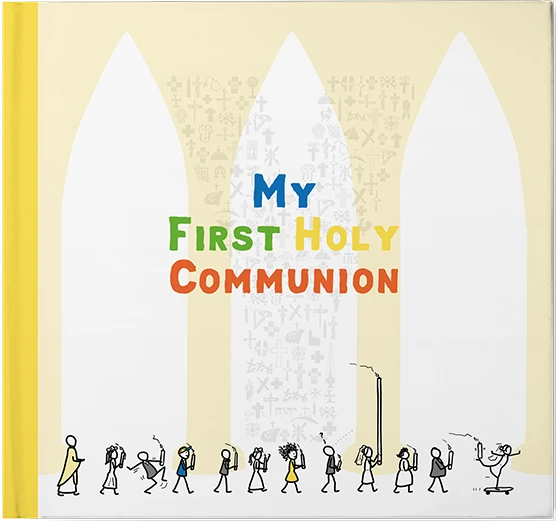

Credopedia
What do we really need the Holy Spirit for?
For many Christians, the Holy Spirit is an unknown. He plays a central role in this. An overview of important passages from the Bible and the YOUCAT.
Definition
Pentecost
Pentecost is the third-highest feast of Christianity. Christians celebrate the descent of the Holy Spirit upon about 120 people: the Apostles, Mary, a few women, and other disciples. This group had gathered initially “for fear of the Jews” (Jn 20:19), but also to pray and await a sign from above. Pentecost is celebrated on the 50th day after Easter — this is what Pentecost means in Greek, pentekostē (= ´50th´). Pentecost is regarded as the birth of the Church, and one must consider the significance that this birthplace is identical to the place where Christ first celebrated the Eucharist.
What does the Bible say?
The Holy Spirit ” is the third person of the Holy Trinity and has the same divine majesty as the Father and the Son” (YOUCAT 38). Jesus promised to his disciples that he will send them another “Advocate” (Jn 14:16) shortly before his death who would be with them after he left. When the disciples received the Holy Spirit, they understood what Jesus had meant by these words. They experienced a deep joy and a strong sense of security and also received charisms ( = gifts of grace), e.g. they could prophesy, heal and work miracles. “It is the spirit that gives life” (John 6,63) – to the individual Christians but also to the whole Church, who would be completely lost without the Holy Spirit. Without the gifts of the Holy Spirit (1 Cor 12) the Church is a dead institution.
A short YOUCAT-Catechesis
What do we really need the Holy Spirit for?
When people were not yet sexually educated – around 1968 – a certain Oswalt Kolle landed an international blockbuster with the film “Your Wife – The Unknown Being”. Today one would have to make a film “The Holy Spirit – the unknown being”. Nothing is more unknown in the church and hardly anything is more important than the Holy Spirit, especially in times when many people no longer know where the back and front are.
Some put the Holy Spirit on the somewhat meager formula “What we need is more enthusiasm!” But the Holy Spirit is not meant to raise the emotional operating temperature of worship. In YOUCAT 38 it says: “The Holy Spirit is the third person of the Holy Trinity and is of the same divine greatness as the Father and the Son” – and YOUCAT 113 reinforces this once again: “To believe in the Holy Spirit means to worship him as God, just as one worships the Father and the Son.”
Without the Holy Spirit God is not complete, so to speak. And most of all: without the Holy Spirit God is – once again very man-like spoken – somehow not “there”.
A ghost – or what?
We can imagine something of God the Father – and be it the naive image of an old man with a long beard. With the Son, the New Testament becomes almost physical: “What we have heard, what we have seen with our eyes, what we have looked at and what our hands have touched, we proclaim. (1 John 1:1) But when we speak of the “spirit”, some think only of castle ghosts and other airy phenomena of dubious reality.
Well, there are invisible things that are as real as stone and iron – “love” for example. No one has ever seen love – but it exists without any doubt. With people, love is a kind of in-between thing – the Latin language has the word interest (= in-between-being) for it. Because through Jesus we are in a brilliant way able to look into the inner God, we discover an inter-essence there as well. God is not a monolithic block. In him there is life, community, an unending dialogue of love. The Father’s interest in the Son (and vice versa) is of such enormous intensity that the “in-between” of divine love is not a vague feeling or a quality of relationship, but a person: the Holy Spirit.
A relationship that is a “somebody” – this goes beyond any human imagination. And it gets crazier! Jesus wants to take us into the relationship of all relationships, the inter-essence of God. We are absolutely interesting for him. For this he does not give us a set of rules of associations; we also do not have to artificially set up a certain “spirit” for ourselves.
He gives us a God, so to speak
I beg your pardon? What might the poor Corinthians have thought when Paul asked them: “Do you not know that your body is a temple of the Holy Spirit who dwells in you and whom you have from God?” “Our body,” concludes YOUCAT 120 logically, “is therefore in a sense the living room of God.” The infinite God – in miniature? In an accommodation of flesh, blood and questionable thoughts?
Let’s just look at how Jesus came to this. The gospel of John delivers the farewell speeches of Jesus. One can well imagine what was going on in the friends of Jesus when he announced the failure of his project. These fishermen, farmers and customs officers, who had given up their civil professions, had put everything on one card. Now their hero would leave? An explanation is the least they could ask for.
And Jesus gives it. Message 1: “I will not leave you orphans!” (John 14:18). Message 2: “And I will ask the Father, and he will give you another Advocate to be with you always, the Spirit of truth, which the world cannot accept, because it neither sees nor knows it. But you know it, because it remains with you, and will be in you. (John 14:16-17)
I wonder if the apostles understood anything. I doubt it.
Revelation in the Relationship
One still knows today where the relationship happened. I mean, the place where the disciples entered into the relationship of all relationships. It lies in Jerusalem, on the Zionsberg (for smartphone owners: GPS 31.772167, 35.229281). From Ma’ale Shazkh Street you climb about 40 m up to the “Cenacle”, from which the famous archaeologist Bargil Pixner swears that here – just below the 14th century Crusader church – was the hall where two crucial moments in the history of God’s relationship with the world took place: the Lord’s Supper and Pentecost.
It was the room in which Jesus entered into an unheard-of new relationship with his disciples that made him, so to speak, present in absentia. It was here that Jesus offered himself in Eucharistic form to eat and drink – forever and everywhere. And it was this hall in Jerusalem, which is called the “Upper Room” in the Acts of the Apostles; there the closest confidants of Jesus returned after the Lord had shown himself to them as the Risen One: “Peter and John, James and Andrew, Philip and Thomas, Bartholomew and Matthew, James the son of Alphaeus, and Simon the Zealot, and Judas the son of James …” (Acts 1,13) They had received a mysterious instruction: “You will receive the power of the Holy Spirit who will come upon you; and you will be my witnesses in Jerusalem and in all Judea and Samaria and to the ends of the earth.” (Acts 1:8) What does that mean?
Closed Shop. Maximum tension.
What do you do at a time like this? Wait.
“They all remained there with one accord in prayer, with the women and with Mary, the mother of Jesus, and his brothers.” In the middle: Mary, the relationship expert from the beginning (“Holy Spirit will come upon you and power of the Most High will overshadow you”, Lk 1:35). Through her “yes” the room for the Incarnation of God was opened.
And then they – the mother, the women, the friends – are overcome by Pentecost. A new reality begins. “Fifty days after his Resurrection,” it says in YOUCAT 118, ” the Lord sent the Holy Spirit down from heaven upon his disciples. The age of the Church began. On Pentecost the Holy Spirit transformed fearful apostles into courageous witnesses to Christ. In a very short time, thousands had themselves baptized: it was the birthday of the Church. The miracle of the languages on Pentecost shows that the Church is there for all peoples from the very beginning: She is universal (= the Latin term for the Greek kat’ holon, catholic) and missionary. She speaks to all men, overcomes ethnic and linguistic barriers, and can be understood by all. To this day the Holy Spirit is the “soul” of the Church, the essential principle of her life.the Lord sent down the Holy Spirit on his disciples from heaven.”
Being a spiritless Christian? That’s ridiculous!
Since Pentecost, God has been in stand-by mode. He dwells in the heart of the Church and in the heart of every single believer. Every contact with God, every vocation to him, every talk about him is “spiritual” – or he is label fraud. When we pray, God calls in us for God outside us, and when we recognize God, God recognizes in us the God above us. “Without the Holy Spirit you cannot understand Jesus,” says YOUCAT 114. When healing happens in the church, it is healing in the Holy Spirit. Without him no one is comforted, strengthened, converted, led and reconciled. Without the Veni Sancte Spiritus, no one in the church can teach, bless, guide. Without “anointing from above” one cannot practice theology. “Without” one cannot give the sacraments either; the gifts of the earth remain unaltered. Without the Holy Spirit, pastoral workers are only blind guides for the blind. Without the Holy Spirit the whole highly differentiated complex of the church is nothing but a poor piece of sociology. And “wisdom, understanding, counsel, fortitude, knowledge, piety, and fear of the Lord” (YOUCAT 310) are normal skills, at least not the Seven Gifts of the Holy Spirit. The world remains the world. Nothing comes from above.
Metropolitan Ignatius Hazim, the former Greek Orthodox Patriarch of Antioch (1920-2012), expressed it in an inimitable way: “Without the Holy Spirit, God is far away, Christ remains in the past, the Gospel is a dead book, the Church is an organization, authority is only domination, mission is a propaganda, cult is an incantation, and Christian action a slave morality. But with the Holy Spirit the cosmos rises and groans in the birth pangs of the Kingdom, the Risen Christ is there, the Gospel is the power of life, the Church is the trinitarian community, authority is a liberating ministry, mission is a new Pentecost, liturgy is remembrance and anticipation, human action is glorified.“

YOUCAT Digital
Discover our digital products, which will help you to grow in faith and become missionaries yourself.







